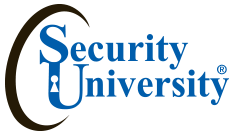This 40 hr 1 wk hands-on class introduces you to "How To Break and FIX Software Security," a step by step methodology to effectively and efficiently test software. You will learn a very applied and non-rigid approach to bang software for common bugs. It's a departure from conventional testing in which testers prepare a written test plan and then use it as a script when testing the software. The class teaches you how to plan tests "on the fly" by providing you with insight, experience, and a nose for where bugs are hiding. This workshop is presented in an "interwoven" format where each topic has a hands-on component so that you can explore the testing techniques using real tools.
| Class Fee: | $3,990 |
| Time: | 72 hrs |
| Learning Level: | Entry |
| Contact Hours: | 40 hr 1 wk + 32 hr pre-study & 2hr exam |
| Prerequisites: | Understanding of TCP/IP Protocols |
| Credits: | 72 CPE / 3 CEU |
| Method of Delivery: | Residential (100% face-to-face) or Hybrid |
| Instructor: | TBD |
| Method of Evaluation: | 95 % attendance 2. 100 % completion of Lab |
| Grading: | Pass = Attendance+ labs & quizzes Fail > 95% Attendance |
Sample Job Titles:
Analyst Programmer/Computer Programmer
Configuration Manager
Database Developer/Engineer/Architect
Information Assurance (IA) Engineer
Information Assurance (IA) Software Developer
Information Assurance (IA) Software Engineer
Research & Development Engineer
Secure Software Engineer/Security Engineer
Software Developer/Software Engineer
Architect/ Systems Analyst/Web App Developer
Text Materials: Class handbook, lab, SU resource & attack handouts
This accelerated class is taught using face to face modality or hybrid modality [excluding veterans using the Veterans Education benefits, can only attend in the face to-face modality]. Class includes 72 hours of contact studies, labs, reading assignments and final exam - passing the final exam is a requirement for graduation.
Who Should Attend -Information Security and IT managers; Information Assurance Programmers; Information Security Analysts and Consultants; Internal Auditors and Audit Consultants; QA Specialists
KU Outcomes
- Students will be able to produce software components that satisfy their functional requirements without introducing vulnerabilities
- Students will be able to describe the characteristics of secure programming
Grades - All students must ordinarily take all quizzes, labs, final exam and submit the class practical in order to be eligible for a Q/ISP, Q/IAP, Q/SSE, or Q/WP credential unless granted an exception in writing by the President. Know that Q/ISP classes draws quite the spectrum of students, including "those less comfortable," "those more comfortable," and those somewhere in between. However, what ultimately matters in this course is not so much where you end up relative to your classmates but where you end up relative to yourself in on Friday of class. The course is graded as a pass or fail solely on your attendance and participation. Those less comfortable and somewhere in between are not at a disadvantage vis-à-vis those more comfortable. Escalating labs help you prepare for real world scenarios. Each labs escalates upon itself, increasing in intensity, rising to the next level, while your mitigating the threat step by step
Books - No books are required for this course. However, you may want to supplement your preparation for or review of some lectures with self-assigned readings relevant to those lectures' content from either of the books below. The first is intended for those inexperienced in (or less comfortable with the idea of) hacking. Those Less Comfortable - Hacking for Dummies,
For Those More Comfortable The Basics of Hacking and Penetration Testing: Ethical Hacking and Penetration Testing Made Easy by
Patrick Ngebretson (Jun 24, 2013)



